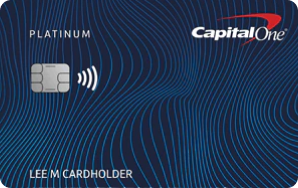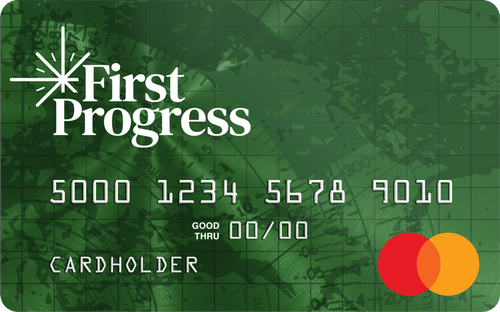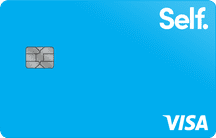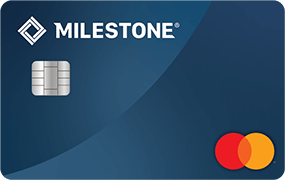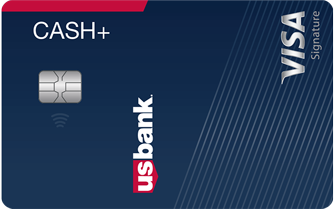What is considered bad credit?
A bad credit score is anything below 579 on the FICO Score scale and anything under 600 on the VantageScore scale, but bad credit is not just a score. It also refers to bad money management habits such as a history of late payments, defaults, bankruptcy, and extensive reliance on credit.
What causes bad credit?
These are seven of the most common reasons people get a bad FICO rating:
-
Late payments, missing payments, or not paying the minimum. Your payment history makes up the majority of your credit score. Missing a payment or making a payment late can cause a major decrease in your credit score.
-
High credit utilization. If you’re using a large percentage of your available credit (aka your credit utilization ratio), lenders may not view you as reliable. This can easily affect your credit score negatively.
-
Carrying a balance. When you carry a balance from one month to the next, you begin accruing interest on that debt. Interest costs can add up quickly, making it more difficult to pay off your bill. Best practice: pay off your credit card bill in full every month.
-
Limited credit history. If you don’t have any credit history, credit agencies have no information on you and whether or not you are able to repay your debt. Not to worry, many cards are designed for people with no credit to start establishing it over time.
-
Filing for bankruptcy. If you’re currently under a repayment agreement or Individual Voluntary Arrangement, you may also see a negative dip in your score.
-
Identity theft. If someone opens a card in your name, they can rack up giant bills and damage your credit reputation. Protect yourself from identity theft by setting up an alert that lets you know anytime your credit is used or when someone makes a transaction.
-
Applying for too many credit cards. Any time you apply for a credit card, you go through a “hard inquiry,” which can temporarily lower your credit score. If you apply for too many cards in a short time, this can significantly decrease your score.
How bad credit can impact you
Credit scores exist to tell lenders how much of a risk it is to lend someone money. If your score is higher, they don’t view you as much of a risk and are more likely to approve you. If you have bad credit, they perceive you as quite risky, so even if you manage to get approved, you may need to make a security deposit and will have a high interest rate.
Not only credit card issuers and lenders use your credit score as a measure of reliability. Landlords, employers, utility companies, and others may check your credit score to see how reliable you are with money.
Who should get a credit card for bad credit?
-
People with a credit score under 600 should consider getting a credit card for bad credit. If you’re not sure what your score is, learn how to check your credit score.
-
If you’ve declared bankruptcy, you may need to search for cards that are specific for credit building.
-
If you have very little or no credit history, credit cards for no credit history can help you build from the ground up.
When you have bad credit, your credit card options are limited, but we all have to start building credit from somewhere.
Types of credit cards for bad credit
Credit cards for poor credit are designed to have fewer frills and more opportunities to start building or improving your credit history.
Typically people with bad credit have a choice between 2 different types of credit cards:
- Secured credit cards
- Unsecured credit cards
The primary difference between a secured and unsecured credit card lies with the security deposit.
Secured cards
Secured cards require a refundable security deposit that determines your card’s credit limit. Many secured cards require a minimum or maximum security deposit, often ranging from around $200 all the way to $3,000. Since you are essentially borrowing from yourself, you remove the risk of loss to the card issuer, so it’s typically easier to qualify for a secured card.
Unsecured credit cards
Unsecured cards don’t require a security deposit, and as a result, have a more flexible credit limit which can vary based on your credit score and spending habits.
Both secured and unsecured cards can help you rebuild your credit. When it comes to credit cards for bad credit, we’d typically recommend getting a secured credit card, as the fees tend to be lower and they’re easier to qualify for.
How to choose a credit card when you have bad credit
When choosing a credit card, it’s important to look at cards made for bad credit borrowers. This will give you the best chance of being approved. Consider the following when choosing a credit card for bad credit.
-
Secured vs unsecured. Decide whether a secured or unsecured credit card is better for you. Keep in mind that if you have a very low credit score, secured cards may be your only option. However, secured cards require a security deposit, which could be challenging if you don’t have the funds. Most deposits start at $200 and get higher from there.
-
Rewards. Typically, rewards credit cards or cards with a sign-up bonus require a good credit history. However, some credit cards for poor credit do offer rewards like cash back. If you plan on using your card regularly, this could be worth looking into.
-
Fees. Both secured and unsecured cards can come with different types of fees, including monthly maintenance, annual fees, late fees, foreign transaction fees, etc. If you don’t want to get locked into regular fees, take a look at the fine print. If you don’t use your card regularly, we suggest looking at credit cards with no annual fee.
-
Credit limit increase & ability to upgrade. If you’re good about paying your balance off every month and not being late, your credit card issuer may increase your credit limit or allow you to upgrade from a secured to an unsecured card.
What is the easiest card to get approved for?
The easiest cards to get approved for are credit cards that don’t require a credit check, like the OpenSky® Secured Visa® Credit Card.
In general, secured credit cards are easier to get approved for than unsecured cards. While you’ll have fewer options overall, you may qualify for a variety of secured cards and a few unsecured credit cards, even if you have bad credit. Choosing the cards listed in this article is a good place to start.
How to apply for a credit card for bad credit
-
Check your credit score. Check ahead of time to know which cards you may qualify for.
-
Learn more. When you decide on a card you’re interested in, hit the “Learn More” button next to the cards at the top of this page to read all of the necessary details about the card.
-
Apply. If you’re certain about your card choice, click “Apply Now” to go through the credit card application process. You’ll likely need to give your name, address, phone number, email, income info, and social security number.
-
Wait to see if you’ve been approved. You may receive approval immediately or you may have to wait for the issuer to get back to you.
-
Provide a security deposit, if applicable. If you choose a secured credit card, you won’t be able to use it until you successfully fund your security deposit. Typically, the amount you deposit will become your credit line, so if you deposit $200, your credit limit will be $200. Some cards, like the Capital One Platinum Secured, allow you to pay a lower amount for a higher credit line.
-
If you’ve been approved, congrats! You may be able to use your new card instantly through a virtual wallet or you may have to wait for the physical card in the mail.
How to raise your credit score with a credit card
Credit cards are some of the easiest, most effective, and most well-known tools to raise your credit score. Once you’ve been approved for a card, follow these tips to start improving your score.
-
Make small purchases and pay them off quickly. One of the easiest ways to improve your score is by making regular, on-time payments.
-
Keep your credit utilization low. The best practice is to keep your balance at 30% of your available credit or lower. If you have a card with a $200 credit limit, that means you should keep your balance at $60 or lower.
-
Always pay in full. Although it may be tempting to make only the minimum payment each month, carrying any balance will mean accruing interest. Avoid those costs by paying your balance off fully every month.
See more tips in our helpful guide on how to improve your credit score.




